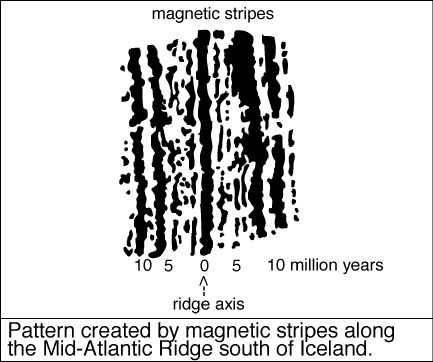What are you other than a highly parallel computer? If no computer can be sentient, then neither can you (or I).
Do you really think or do you only believe that you think?
What do you actually mean with thinking?
What is sentience that you can clearly attribute it to yourself but deny it to any machine?
The one thing I know for certain is that I am
NOT a parallel computer. This is not a reaction or objection. It is simply a fact. No sentient entity is (or anything alive in my opinion). This is the reduction of the mind to a machine and it is completely groundless. (I am not trying to be argumentative here... just trying to explain.)
To give a specific example: no matter how you arrange atoms and energy, there is no purely mechanistic principle that can account for (or give rise to) the
experience of red. "Pure" red has a specific wavelength. But while a wavelength and a certain "configuration" of atoms in my mind may cause the experience of red, there is nothing inherent about that configuration or wavelength (alone) that can account for the actual experience. We can't even prove that everyone sees the same color (even those who have the exact same genes and perfect biological equipment). Maybe what I experience as red is equivalent to your experience of blue. We just happen to agree that it is red because that is what we have been taught to call it from the first time we noticed it in the book someone read to us as a child.
Meaning itself is purely subjective. A computer has nothing within its makeup or machinery that gives it the ability or capacity to contemplate the meaning of anything. It is an object with no capacity for subjective experience (unless we were to somehow imbue it with subjective properties... make it alive per se).
THAT is where science fails to explain existence in its entirety. Science is only half an answer (as it currently exists).
The attempt by scientists to reduce thought, emotions, and consciousness to a purely mechanistic processes is called reductionism and it is a fallacy. It is not only to say that the whole is more than the sum of its parts, it is also to say that parts can create an existence which has nothing in common with those parts.
Subjectivity cannot be logically reduced to objectivity. Thomas Hobbes tried to do this indirectly in his book Leviathan (I think that was the book anyway...). His idea (simplified and shortened) was that reality has too many variables to keep track of. The mind is so complex that it cannot understand itself. Therefore, it creates a shortcut called "subjectivity," an
illusion that represents and "simplifies" the complexity. This argument (and others like it) have been used by physicalists (and materialists) for centuries.
The problem with this argument is that it is self-contradictory. An illusion is by definition subjective. You cannot say that subjectivity doesn't exist by calling it a subjective phenomena.
Notice that with every statement I have always used a qualifier like "purely" or "completely" or "alone" or "by itself." Going back to the red example... ULTIMATELY... that configuration and/or wavelength
IS responsible for the experience of red. But that is only half the story. Some other aspect of reality exists that works in tandem with the physical to give rise to the experiential, something that has a subjective nature. I am not saying that it has to be "spiritual."
It could be matter itself for all we know. But if you are going to say that then you must also say that matter has subjective properties which we cannot (currently) directly detect or make scientific sense of. This is currently contradictory to the definition of matter (which is anything that takes up space... a measureable, objective, quantity).
Even if you believe we are all part of some grand computer simulation... a part of the simulation must have a subjective nature in order to give rise to the subjectivity that is experienced.


![Offtopic [offtopic] [offtopic]](/images/smilies/offtopic.gif)
 Now that would be QUITE the religion.
Now that would be QUITE the religion.
